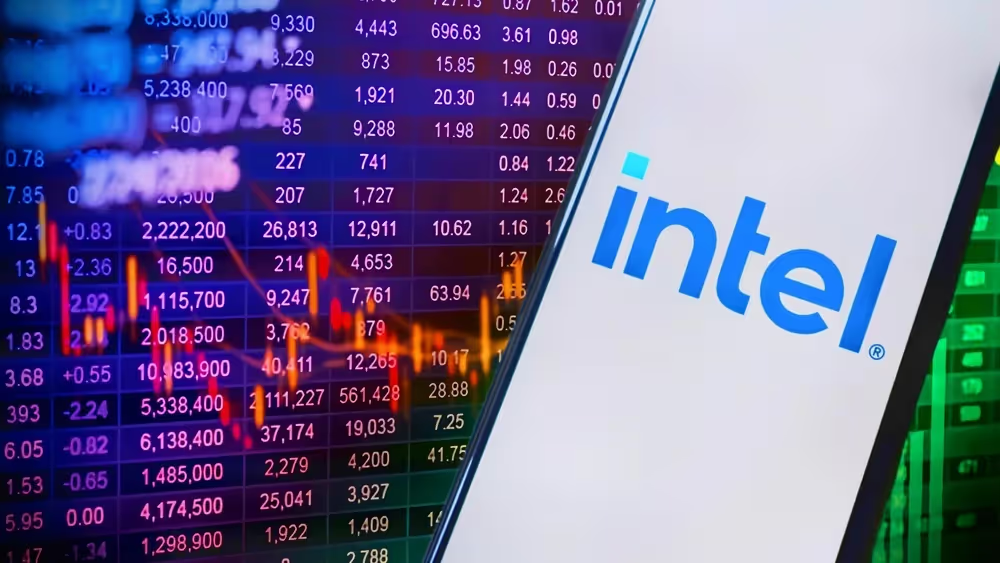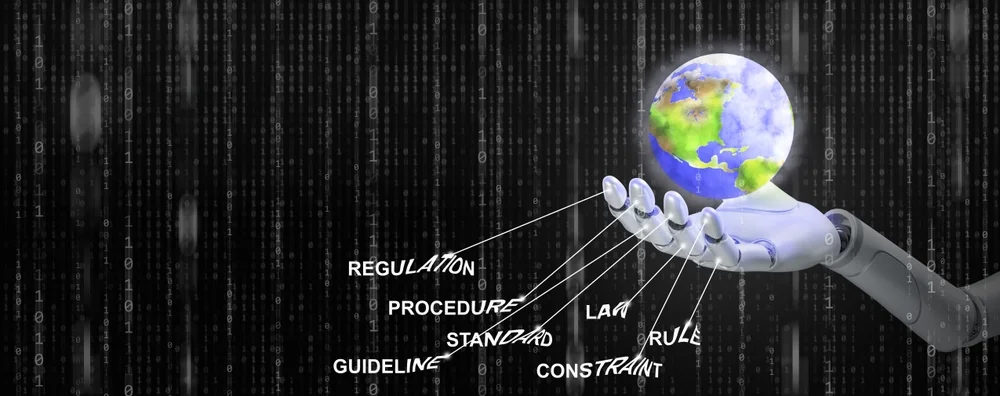
State Capitalism with MAGA Characteristics
The US does not need Washington to gamble with taxpayer money in the stock market.
It is astonishing that in 2025, decades after socialism’s intellectual and practical collapse, America finds itself debating whether Washington should own a piece of Intel. The Trump administration’s decision to convert CHIPS Act subsidies into an $8.9 billion purchase of 10 percent of Intel is not just bad economics; it offends the very principles of limited government and free markets that have made the United States prosperous and innovative.
The notion of government “partnering” with industry isn’t new, and it usually ends with taxpayers on the hook, politicians dictating corporate strategy to some extent, and long-term competitiveness compromised. And yet here we are, once again, cheering industrial policy as if Don Lavoie, Ludwig von Mises, and F.A. Hayek never existed.
Lavoie’s Warning Ignored
Lavoie’s work remains the most powerful rebuttal to precisely this kind of policy. In his 1985 book National Economic Planning: What Is Left?, he demolished the conceit that government officials, however well-intentioned, can steer industries in ways that increase the nation’s prosperity. Building on Mises and Hayek, Lavoie explained the “knowledge problem”: the information needed to allocate resources productively is dispersed among tens of millions of individuals and businesses. No central planner, no bureaucrat in Washington, could ever gather, process, and act on that knowledge in real time in ways that even begin to match the efficiency and creativity of the market. When the government arrogates to itself the power to guide investment, it replaces market signals with political ones, and it creates more problems than it solves.
And then there is the “power problem.” To guide investment, the government must exert control. That means that politicians and bureaucrats decide which firms thrive and which don’t, which contracts are signed and which aren’t, and which technologies advance and which wither. This political favoritism inevitably breeds cronyism, rent-seeking, and politicization of commercial life. This is why government planning, whether comprehensive or piecemeal, ultimately results in less freedom and less prosperity.
Intel’s forced marriage with the federal government is a textbook case of both the knowledge and power problems.
Political Business, Not Semiconductors
What does it mean when the government is Intel’s largest shareholder? One thing is sure, it doesn’t mean the same as if Americans owned stocks in Intel. When Americans voluntarily buy Intel stock through a mutual fund, retirement account, or direct investment, they assume both the risk and reward of ownership, and their property rights are secure and personal. By contrast, the government is not a neutral trustee acting on behalf of every citizen; it is a political institution with its own incentives, agendas, and pressures. What’s more, government ownership, like subsidies, socializes risk while privatizing political control, leaving taxpayers on the hook without granting them the genuine rights, responsibilities, and choices that real ownership entails.
Even with the government owning shares of Intel, because the government is the largest investor and because of its ability to inflict pain but also reward the company, decisions about where to build fabs, whom to hire, which suppliers to use, and which R&D to prioritize could very well no longer be guided by considerations of economic efficiency, but rather by political expediency. Will Intel expand in Ohio or Arizona based on technological needs, or will it be influenced by which state happens to deliver the right electoral votes? Will hiring decisions be based on skill, or on satisfying the latest diversity mandate from Commerce?
Already, we see the rot. Trump bragged that Intel’s CEO “walked in wanting to keep his job and walked out giving us $10 billion.” This isn’t capitalism, as Commerce Secretary Howard Lutnik claims. It’s extortion masquerading as patriotism. The terms of the equity purchase, which involve buying discounted shares below market, along with options for further government purchases, suggest that Intel’s fiduciary duties to shareholders have been subordinated to political goals. That is the essence of the power problem.
Moreover, the demands of a Republican administration will almost certainly shift under a Democratic one. As Richard Morrison commented on X, “Can't wait for the mandatory DEI trainings for all Intel employees under the next Democratic administration.” That’s no way to run a business—especially for a company already weakened by past missteps. As Cato Institute’s Scott Lincicome noted in The Washington Post, “Intel already faces significant operational and competitive challenges; it has been a technological laggard for more than a decade as Nvidia, AMD, TSMC and other competitors have raced ahead. Adding a layer of political oversight to Intel’s already complex turnaround effort is far more likely to hinder than help.”
Systemic Risks
But the government’s large ownership stake in Intel introduces additional systemic risks. If Intel continues to underperform or worse, will taxpayers be forced to prop it up to protect Washington’s “investment”? Will future presidents of either party use this precedent to take stakes in other “strategic” companies? Will regulators pressure competitors to buy from Intel, skewing markets and weakening our semiconductor ecosystem? Will investors shy away from industries that might be the next target of Washington’s “partnerships”?
This is how interventionism metastasizes. One intervention begets another, as policymakers attempt to correct the distortions caused by the previous round. The CHIPS Act was itself bad policy, but turning those subsidies into equity ownership is worse—it doubles down on failure, converts grants into crony capitalism, and now metastasizes into partial nationalization. It turns government and privileged businesses into a duo that inflicts damage across the economy.
As the political economist Mikayla Novak recently reminded me, this dynamic is precisely what Don Lavoie warned about in the 1980s when he used industrial policy as a prime example of why even so-called “piecemeal” planning cannot work. In Novak’s words: “Lavoie’s enduring lesson is that industrial policy is not a corrective to market failure, but a perpetuation of government failure. Once you cross the threshold into firm-specific favoritism, you invite an endless cycle of interventions, each one attempting to paper over the distortions caused by the last. That is not a strategy—it is sclerosis.”
Lavoie’s insight was prophetic: industrial policy is always a gateway drug to crony capitalism, because once politicians have money or equity tied up in a firm, they inevitably “want something for their money.” And unlike private investors and entrepreneurs, politicians and bureaucrats don’t have to provide good economic value in exchange for what others contribute to their ‘enterprises.’
Finally, the Intel takeover may also represent actual security risks. According to Forbes, “Forbes has learned that the tech company has little-known partnerships with multiple Chinese surveillance firms that have faced sanctions. The U.S. government has accused two of the companies, surveillance camera manufacturer Hikvision and facial recognition firm Cloudwalk, of allegedly enabling human rights abuses through the surveillance of Uyghurs.”
Order Without Design: The American Story
The United States became the world’s technological leader not because Washington owned companies, but because Washington did not. Our greatness was built on a system in which risk-taking entrepreneurs are free to pursue innovation, in which capital markets reward success and punish failure based on economic criteria, and in which technical choices are not dictated by political power. From semiconductors to software to the internet itself, breakthroughs occurred because individuals were free to act on their knowledge, not because politicians sat in boardrooms.
When the government claims a permanent stake in a private company, that system is undermined. And the more Washington becomes accustomed to having “a piece of the action” (as Howard Lutnick put it), the more it will invent reasons to expand its reach further. If the CHIPS Act was a mistake, the correct response is to repeal it, not to exacerbate the issue by converting subsidies into equity. If Intel cannot compete, then capital should flow to those companies, AMD, Nvidia, TSMC, or others that can. That is how markets discipline failure and reward innovation. To place Intel under these golden fetters of political oversight is to guarantee that its long-awaited turnaround will never arrive virtually.
The United States does not need state capitalism. We do not need Washington to gamble with taxpayer money in the stock market. We need the humility to recognize that politicians and bureaucrats cannot pick winners, cannot outthink markets, and cannot manage complex technologies from the top down. Don Lavoie taught us this forty years ago, and his lesson is even more urgent today.
Veronique de Rugy is the George Gibbs Chair in Political Economy and Senior Research Fellow at the Mercatus Center at George Mason University and a nationally syndicated columnist. She is a contributing editor to Civitas Outlook.
Economic Dynamism

Do Dynamic Societies Leave Workers Behind Economically?
We need a more dynamic economy that can help workers by allowing them to move where they can best use their skills.
.jpg)
Do Dynamic Societies Leave Workers Behind Culturally?
Technological change is undoubtedly raising profound metaphysical questions, and thinking clearly about them may be more consequential than ever.

The War on Disruption
The only way we can challenge stagnation is by attacking the underlying narratives. What today’s societies need is a celebration of messiness.

Unlocking Public Value: A Proposal for AI Opportunity Zones
Governments often regulate AI’s risks without measuring its rewards—AI Opportunity Zones would flip the script by granting public institutions open access to advanced systems in exchange for transparent, real-world testing that proves their value on society’s toughest challenges.

Downtowns are dying, but we know how to save them
Even those who yearn to visit or live in a walkable, dense neighborhood are not going to flock to a place surrounded by a grim urban dystopia.

AI Needs Consumer Choice, Not Bureaucratic Control
The regulatory approach treats consumer AI as a problem to be solved rather than as another service best left to a competitive, dynamic market to provide consumers with autonomy and choice.

The Start-Up Paradox: The Coming Red Shift in Innovation
Despite London's success, the future of innovation is securely in American hands for the foreseeable future.




.jpeg)




.jpg)




